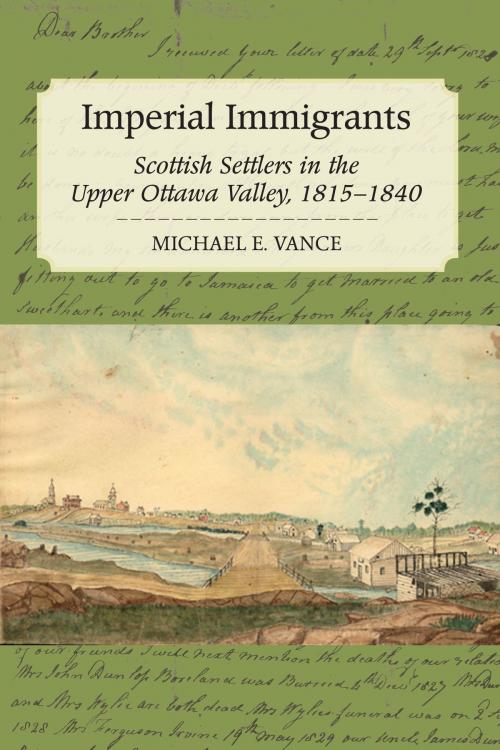Imperial Immigrants
The Scottish Settlers in the Upper Ottawa Valley, 1815–1840
Nonfiction, History, Canada, Social & Cultural Studies, Social Science, Cultural Studies, Emigration & Immigration, British| Author: | Michael E. Vance | ISBN: | 9781459704008 |
| Publisher: | Dundurn | Publication: | August 18, 2012 |
| Imprint: | Natural Heritage | Language: | English |
| Author: | Michael E. Vance |
| ISBN: | 9781459704008 |
| Publisher: | Dundurn |
| Publication: | August 18, 2012 |
| Imprint: | Natural Heritage |
| Language: | English |
The impact of the British Empire on the history of the Upper Ottawa Valley is explored through the experiences of early emigration-assisted 19th-century Scottish immigrants.
Between 1815 and 1832, Great Britain settled more than 3,500 individuals, mostly from the Scottish Lowlands, in the Ottawa Valley. These government-assisted emigrations, which began immediately after the Napoleonic Wars, are explored to reveal their impact on Upper Canada.
Seeking to transform their lives and their society, early Scots settlers crossed the Atlantic for their own purposes. Although they did not blindly serve the interests of empire builders, their settlement led to the dispossession of the original First Nation inhabitants, thus supporting the British imperial government’s strategic military goals. After transferring homeland religious and political conflict to the colony, Scottish settlers led the demand for political reform that emerged in the 1830s. As a consequence, their migration and settlement reveals as much about the depth of social conflict in the homeland and in the colonies as it does about the preoccupations of the British imperial state.
The impact of the British Empire on the history of the Upper Ottawa Valley is explored through the experiences of early emigration-assisted 19th-century Scottish immigrants.
Between 1815 and 1832, Great Britain settled more than 3,500 individuals, mostly from the Scottish Lowlands, in the Ottawa Valley. These government-assisted emigrations, which began immediately after the Napoleonic Wars, are explored to reveal their impact on Upper Canada.
Seeking to transform their lives and their society, early Scots settlers crossed the Atlantic for their own purposes. Although they did not blindly serve the interests of empire builders, their settlement led to the dispossession of the original First Nation inhabitants, thus supporting the British imperial government’s strategic military goals. After transferring homeland religious and political conflict to the colony, Scottish settlers led the demand for political reform that emerged in the 1830s. As a consequence, their migration and settlement reveals as much about the depth of social conflict in the homeland and in the colonies as it does about the preoccupations of the British imperial state.















